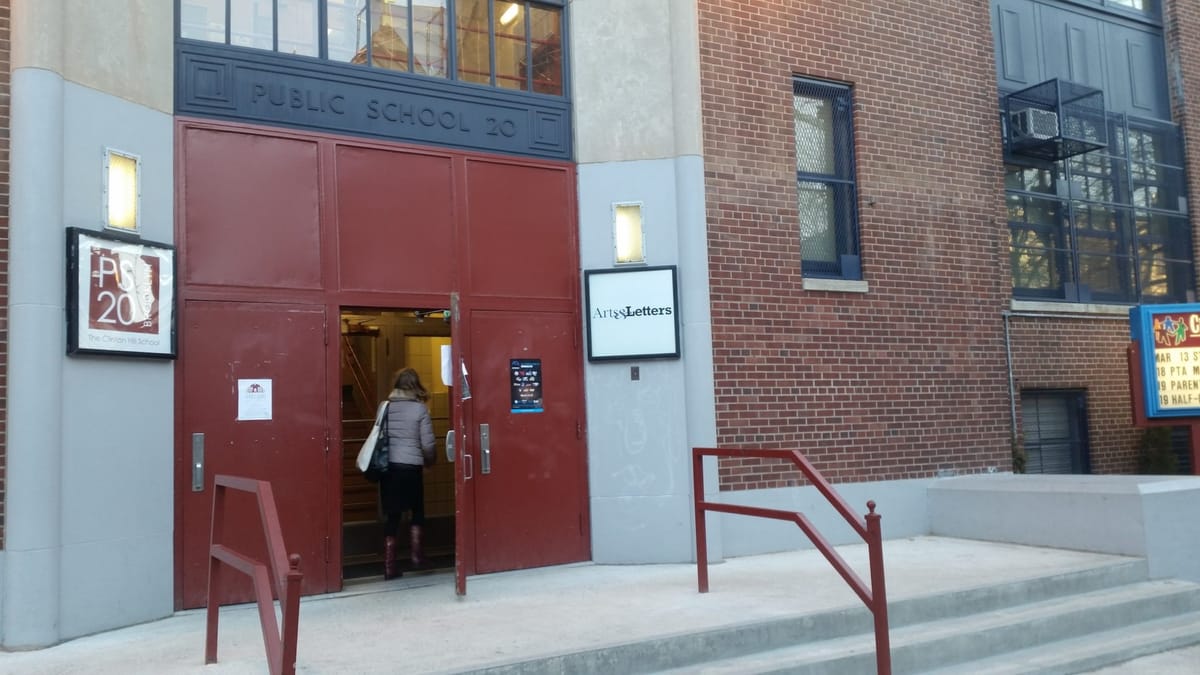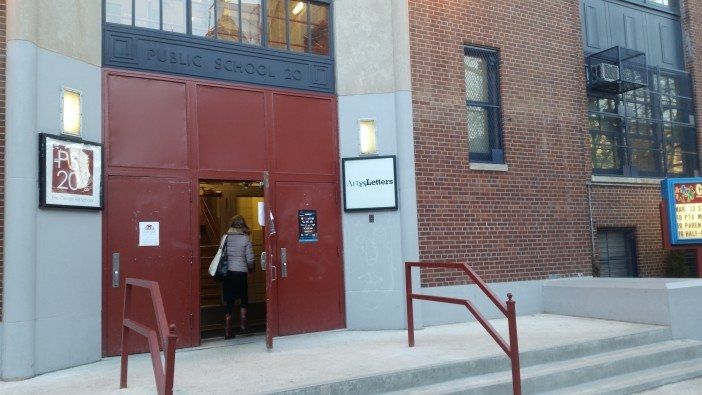NYCDOE To Allow Academy Of Arts And Letters To Increase Student Diversity Through Admissions


Fort Greene’s Academy of Arts and Letters (225 Adelphi Street) will now be allowed to increase student diversity by giving priority for 40 percent of seats to students who qualify for free-or-reduced lunch. The move goes into effect for the coming school year’s kindergarten admissions, which kicks off applications on December 7, through January 15.
Many parents with children at the school say the change has been a long time coming.
“This is something the Arts and Letters parent community has been asking for for a number of years now,” said mom and PTA member Marnie Brady. “It’s a really important issue across the board to so many parents [because] inclusion and diversity makes for a school that’s more reflective of the people of our neighborhood and of Brooklyn and of New York City. And it allows for the students to benefit from more perspective.”
As explained in Chalkbeat New York,
[A&L] has seen its share of low-income students fall from about three-quarters to less than 40 percent over the past several years as the school’s neighborhood has rapidly gentrified. Under its newly approved plan, the school will be able to reserve 40 percent of available seats for low-income students — effectively keeping its share of those students from shrinking any further.
PS 20 PTA Co-President Vascilla Caldeira agreed with Brady (PS 20 shares a school building with A&L and the children often interact).
“Parents I’ve spoken to are happy about it,” Caldeira said. “I have a child at PS20 and children at PS372 The Children’s School (in Carroll Gardens) — which is also doing this. It’s something that’s a long time coming and a good thing, but if we’re doing it for one, we should do it for all.”
Thus far, though, the diversity-through-admissions initiative is only in the pilot phase, limited to seven schools (including A&L):
- Neighborhood School in Manhattan: Students who qualify for FRL or are ELLs would have priority for 45% of seats.
- Earth School in Manhattan: Students who qualify for FRL or are ELLs would have priority for 45% of seats.
- Castle Bridge School in Manhattan: Students from families impacted by incarceration would have priority for10% of seats and students who qualify for FRL would have priority for 60% of seats.
- PS 146 Brooklyn New School in Brooklyn: Students who qualify for FRL would have priority after siblings and current pre-K students.
- The Children’s School in Brooklyn: Students who qualify for FRL or are ELLs would have priority for one-third of seats.
- Brooklyn Arts and Science Elementary School: Students who are ELLs or are in the child welfare system would have priority for 20% of seats.
Schools Chancellor Carmen Fariña stated that “Students learn from the diverse experiences and cultures of their fellow students, and it’s important that our schools match the diversity of our city,” and that she is “hopeful that these changes will help serve as a model for schools across the city.”
Brady and Caldeira are also hoping for that expansion.
“We believe it’s a very preliminary step — a baby step — that will only be as effective as it becomes district-wide,” said Brady. “We know this is a positive first move by the DOE, but if they are to take seriously desegregation, the entire system needs to ensure that there’s integration across the schools. It makes it a more democratic practice — a school should be representative of its neighborhood and resources should be distributed equitably across districts.”
Chalkbeat notes that the goal of the pilot admissions system is to “help schools in gentrifying areas avoid “tipping,” or switching from a mix of students from different backgrounds to a majority of students from middle-class families that are settling in the school’s neighborhood.”
However, as Community Education Council District 13 President David Goldsmith noted, expanding the policy across the district and DOE is necessary to prevent pilot schools from improving while pushing surrounding schools to become even more segregated.
“If you solve a problem in one school and create a greater problem in five schools as a result,” Goldsmith told Chalkbeat, “what are you really accomplishing?”
Families wishing to learn more about these schools, or about the kindergarten application process, can visit schools.nyc.gov/kindergarten, call 718-935-2009 or visit a Family Welcome Center.



